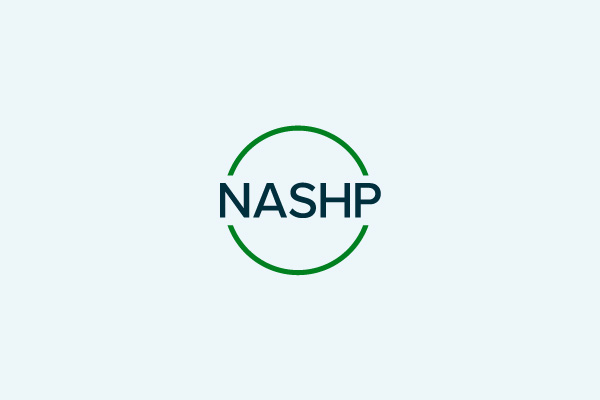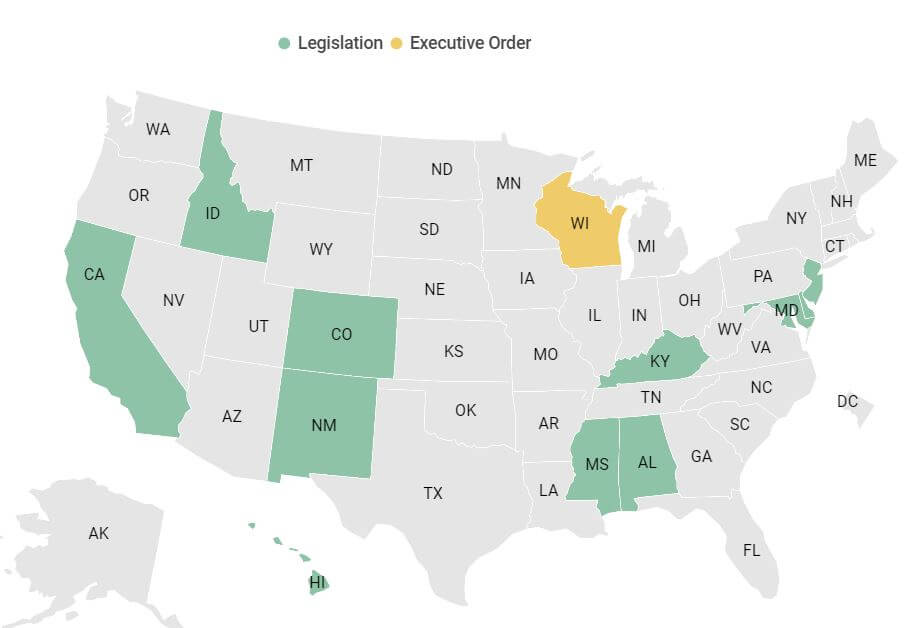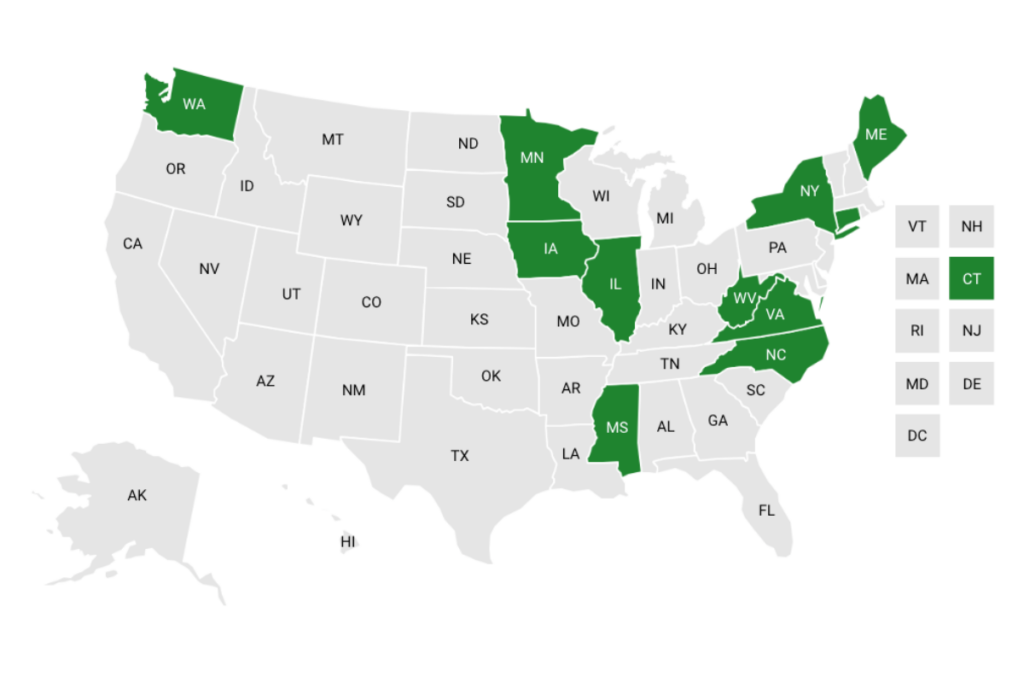This information was collected through a combination of state surveys and NASHP staff research. It offers a snapshot of how the state is defining, training, certifying, and paying for the CHW workforce — as well as how the state is developing cross-agency and state-to-local strategies to improve community health in partnership with CHWs.
This is a dynamic policy space, and states are continuing to develop new approaches. We will continue to make periodic updates to this page. Learn more about state CHW policies across the U.S.
State CHW Definition
New York State Medicaid’s provider manual says CHWs “foster trusting relationships with the populations they serve, function as a link between healthcare providers and patients, reduce barriers to care, and provide health advocacy, health education, and health navigation services. These services aim to improve health knowledge and self-sufficiency and to support a reduction in maternal mortality, injury, illness, or the progression thereof.”
Certification and Training
New York currently does not have certification for CHWs. Training programs that offer a certificate of completion are available, and many employers require this training certificate before or during the initial six months of employment.
The New York State Department of Labor supports CHWs entering the workforce through an apprenticeship program. State University of New York institutions also work to provide CHW training and development opportunities.
The Perinatal and Infant Community Health Collaborative (PICHC) program is using the Institute for the Advancement of Family Support Professionals website for CHW training.
Medicaid Reimbursement
New York State Medicaid reimburses for CHW services under its State Plan. Covered services are defined as including health advocacy, health education, and health navigation. CHW services may be billed with CPT codes 98960, 98961, or 98962.
Other Funding or Financing Mechanisms
State Aid to Localities allocates approximately $14 million annually for the PICHC program. A portion of the funding is matched by Medicaid dollars. Funding supports 26 programs statewide that provide services by CHWs in 31 counties.
The New York State Department of Health’s (NYSDOH) Maternal, Infant, and Early Childhood Home Visiting (MIECHV) grant funds two evidence-based home-visiting models. NYSDOH suballocates a portion of the MIECHV grant to the NYS Office of Children and Family Services, which supports 10 of the 54 Healthy Families New York (HFNY) contracts. Nearly all MIECHV-funded programs also receive a state appropriation from their contracting agency. HFNY programs provide services in all 62 counties. These programs include CHWs.
Key Partnerships
The Community Health Worker Network of New York City, New York State Community Health Worker Initiative (New York Health Foundation), Community Health Worker Research & Resource Center (Department of Population Health supported by New York University Langone’s Community Service Plan), Community Health Worker Association of Rochester, and Greater New York Hospital Association are all key partners.
NYSDOH’s Office of Public Health and Office of Health Insurance Programs (Medicaid) convene a CHW workgroup to share and provide input around planning, progress, and impact of CHW strategies.
The Bureau of Health Equity and Community Engagement is investing in a CHW Community of Practice as part of its initiative to eliminate COVID-19 health disparities. The CHW Community of Practice will identify the unique needs and challenges that CHWs experienced during the pandemic; ongoing gaps; and the skills, competencies, training, and tools that CHWs need for future pandemic response. The Community of Practice will then make recommendations accordingly.
State CHW Legislation
Information is unavailable.
State Resources
Information is unavailable.
State Overviews
ACO – Accountable care organization
AHEC – Area Health Education Centers
APHA – American Public Health Association
APM – Alternative payment model
CBO – Community-based organization
CDC – Centers for Disease Control and Prevention
CDC CCR Funding – Community Health Workers for COVID Response and Resilient Communities Funding
CHR – Community health representative
CHW – Community health worker
CPT Codes – Current Procedural Terminology Codes
C3 Project – CHW Core Competency Project
FFS – Fee for services
HCSPCS Codes – Healthcare Common Procedure Coding System Codes
HRSA – Health Resources & Services Administration
MCO – Managed care organization
NACHW – National Association of Community Health Workers
SDOH – Social determinants of health
VBP – Value-based payment
State CHW Definition: This category indicates where states have a formal definition of a CHW. In some cases, where there is not a definition in statute, this category may draw information from provider manuals and state websites or reports.
Certification and Training: This category includes information about how CHWs are trained in the state, which entities provide training, whether or not the state runs or recognizes a CHW certification program, and information about the entities that administer existing certification programs.
Medicaid Reimbursement: This category includes information about state Medicaid strategies that provide enrollees access to CHW services. Entries indicate whether state Medicaid programs currently reimburse for CHW services or incorporate CHWs into alternative payment models under the authority of a state plan amendment (SPA), or where states have earmarked funds to support CHW services under the authority of an 1115 demonstration waiver. It also indicates where CHW services might be supported through managed care approaches (e.g., where MCOs are paying for CHW services using administrative dollars or where states are using managed care contracts to incentivize or require MCOs to cover CHW services).
Other Funding or Financing Mechanisms: This category includes information about other state funding or financing approaches that cover CHW services or CHW positions. It includes information about federal grant dollars for which the state is the grantee.
Key Partnerships: This category offers information about key partners outside state government, including state CHW associations and CHW training entities, and highlights formal cross-agency partnerships within the state that support alignment of funding and resources for the CHW workforce.
State CHW Legislation: This category highlights any state legislation relevant to the CHW workforce. This might include statutory language directing agencies to develop a Medicaid reimbursement approach, laws that established state CHW certification, or other relevant statutes.
State Resources: This category offers links to any key reports or resources that states elected to highlight as critical to CHW policy and partnership.



